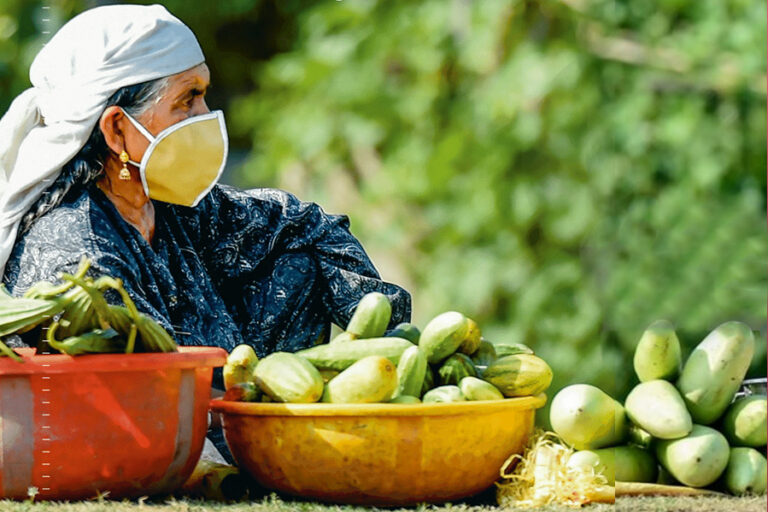Ethiopia reaffirms it would never agree with unfair terms that seek to maintain the hydro hegemony of Egypt and Sudan. Egypt similarly expressed that the second filling causes no harm to its country.
Deputy Prime Minister and Minister of Foreign Affairs (MoFA), Demeke Mekonnen said that neither politicizing nor sabotage should guide policies over the Nile but promoting cooperation, understanding, and integration should be the guiding spirit.
The negotiations over the Grand Ethiopian Renaissance Dam (GERD) provide this opportunity, he said if Egypt and Sudan follow a constructive approach to achieve a win-win outcome within the framework of the ongoing African Union (AU)-led process.
Exerting unnecessary pressure on Ethiopia by intentionally politicizing and internationalizing the matter will not make Ethiopia accept the colonial-era treaty over the Nile River, he said.
The Deputy Prime Minister said Ethiopia would never agree with such unfair terms that seek to maintain the hydro hegemony of Egypt and Sudan.
Demeke made the remarks on Thursday April 15 while delivering an opening speech to an online discussion that was hosted by the Ethiopian Embassy in London organized by MoFA in collaboration with various Ethiopian Missions in Europe.
Attending the discussion, one of GERD negotiating team member, Yilma Seleshi (Prof) said Sudan and Egypt are keen on having a water-sharing agreement than handling the specific cases related to the GERD.
In this regard, he said, Ethiopia is not willing to sign an agreement that will compromise the development endeavors of future generations.
Lemlem Fissaha, member the negotiating team, said what Ethiopia has done in going so far in trying to entertain water-sharing talks, in the absence of international agreement on the use of Nile water is commendable.
Demeke and Seleshi Bekele, Minister of Water, Irrigation and Energy, have also briefed African ambassadors in Addis Ababa on the GERD talks in Kinshasa, DRC.
The two officials stated that the AU led trilateral negotiation is the only viable way to reach a win-win outcome.
The officials added that cooperation and the spirit of African brotherhood are the best option for the management and utilization of the waters of the Nile.
“Attempts of Egypt and Sudan who claim the GERD as a threat to Arab water security (despite being in Africa like every other riparian country and unnecessarily politicizing the matter) is disappointing,”the officials expressed.
Recently, Egypt has come with the statement that the second water filling will not have harm on its water supply.
Ethiopia’s stance on GERD ahead of second filling
EBA pleas government for intervention on bank guarantee suspension
Ethiopian Bankers Association (EBA) has asked the government to intervene on the latest measure of National Bank of Ethiopia (NBE) on suspending some banks from issuing bank guarantees.
NBE, the regulatory body, had suspended some banks on providing different bank guarantees for their clients in relation with reaching their maximum limit.
Bankers, who demand anonymity told Capital that members of EBA, which represents bank presidents’ had discussed the issue in their meeting to which they arrived to a consensus that the government must intervene on the case since the issue is not only aligned with the regulatory body.
According to the information, most of late comers and one long established bank; in total six, have been suspended by NBE to issue a guarantee.
“Conceivably these banks had provided huge amount of guarantee with less response and that is the responsibility of NBE to control them, but the government should also understand their contribution to the economy because of the guarantee they provide,” one bank president, whose firm is not part of suspended banks, commented.
He argued that these banks have been contributing towards the country’s development since majority of the guarantees have been given to projects that are owned by government. “If such kind of service was not provided by banks, developmental projects may have not gone as per the target,” he added.
Other big bank leader also said that the motive of the intervention that EBA demanded is that the government should understand the market and current situation in the country.
Projects have been in difficulties with associated instability in some area that contributed for delays. “For instance projects like roads are carried out in different corners of the country including remote areas, which is highly vulnerable to fall victim, thus pressurizing contractors to become unable to run projects as per the agreement,” he explained.
According to experts in the banking industry, similarly inflation has badly affected projects; meanwhile price evaluation from clients mainly from government has not been coming in appropriate time. “The price escalation has also contributed for delays on projects,” they explained..
Bankers said that as a result the government should be part of the problem and at the same time contribute its part for the solution.
Capital sources indicated that the letter that was sent to the federal government via EBA was issued about a week ago. However, so far there has not been any response from the government side.
Recently, contractors had claimed that they have fallen victim to the decision of NBE after it took measures on the banks.
Contractors via their association, Construction Contractors Association of Ethiopia (CCAE), said that for the last couple of months CCAE has written letters to acquire solution on the areas including; price escalation, financial transaction and restriction on some banks to issue guarantee for bid and projects.
They said that since January, NBE has suspended few banks from issuing bid guarantee and advance payment bank guarantee and performance bond for projects.
“Because of NBE’s decision, contractors are unable to use the extra amount on their collaterals that are already controlled by the suspended banks,” Yusuf Mohammed, member of Board of Directors of CCAE, said.
“Based on the measure of NBE, contractors shall not participate on bid that requires bid guarantee bond besides accessing advance payment guarantee,” Girma Habtemariam, President of CCAE expressed.
Some of the banks included under the NBE temporary suspension are; Enat, Abay, Wegagen, Addis International, Lion banks.
CONSOLIDATING THE HORN
Consolidating the Horn from the outside is all the rage in the twilight of the modern world system. Before looking at the economic imperatives of consolidating the Horn from the inside, (citizens/member countries) we will look at the ‘all of a sudden interests’ emanating from the outside. There are two opposing camps working towards this consolidation project. One is represented by empire and its associates in MENA (Middle East & North Africa). By empire, we usually mean the triad (Samir’s word; God bless his soul), the US, Western Europe and Japan. Here, the strategy is more or less known; it is to maintain the global status quo with the reigning hegemon intact at the helm. The other is the interest pursued by the new ascending powers spearheaded, for the most part, by China and Russia. The SCO ensemble (Shanghai Cooperation Organization) is probably the real representative of this new gathering force!
The BRI (Belt and Road Initiative) of the Chinese is a massive undertaking that can potentially rearrange the current world order. It envisions integrating economically (hence, culturally, etc., etc.) the continents of Asia, Africa and Europe. The Eurasian project is already underway and the SCO is going to be the main vehicle for this project. The Eurasia land mass contains the largest known deposit of fossil fuel (including natural gas), to say nothing about other natural resources. It is also home to about 45% of the total human population. The BRI is going to be an integrated economic system that is going to rely, mostly, on road and rail networks. To recall; Russian and China are land based powers. These countries are now determined, more than ever, to leverage their physical geography to advance a global system that will have its center of gravity more towards the east. The stakeholders in this new system will be the numerous states and their population, as they will be critical to the functioning of the whole amalgam. Therefore, as far as the new ascending new project is concerned, multi-polarity is already baked in. This inclusively encompassing project, on its own, can have a stabilizing influence amongst the numerous nations that have been in conflicts for centuries. Geography is going to become destiny, again!
The BRI initiative also includes our continent. To that end, a corridor or corridors are needed to connect Eurasia and Africa. The best option for this seems to be along the Res Sea coast. Bab-el-Mendeb is a strait between the two continents and has a span of only 20 km! This is another of the choke points of the global sea routes, like the Strait of Hormuz in the Persian Gulf. Directly or indirectly controlling such Straits has been critical to the previous/current sea powers of the world system, namely the British and the American empires. Relinquishing the management of these sea passages to a new multipolar arrangement is bound to undermine the existing status quo, hence, might not be welcomed by empire, to say the least! Be that as it may, the two camps (empire & SCO) implicitly agree on the need to have reliable and permanent security zone around the Strait of Bab-el-Mendeb. In regards to this particular objective, the current war in Yemen is not going to help. To counteract the current situation on the Asian side of the Red Sea, the African coast must be strengthened, per force!
The oil kingdoms and powerful others want to protect this critical sea route, which is used for transporting goods, including oil to Europe and beyond. The Strait of Bab-el-Mendeb is becoming increasingly important as the Strait of Hormuz becomes increasingly volatile. If the Strait of Hormuz runs into potential difficulty, on the account of disagreements between Iran and the US, the only way to get oil out of Iraq, Kuwait, Qatar, Saudi Arabia and the UAE will be via Yemen, Oman or the Red Sea (assuming the northern route via Syria, etc. will remain inaccessible)! The former two might not always be compliant to empire’s desire (for various reasons), leaving the Red Sea as the more realistic option. And for that to happen, pipelines need to be built across the Arabian Peninsula all the way to the Red Sea coast! Far fetched as this might sound, the scenario is being entertained by the rich and the powerful. To this end, a meaningful naval force must also be established in the Horn, to protect the Strait ob Bab-el-Mendeb and the whole Red Sea coast. Amongst others, the ports of Assab and Massawa need to be revived. Even though Somalia has the longest coastline in Africa, assuring the safety of vessels, in its proximity, has become problematic after the collapse of the Mogadishu government in 1991. Besides, Somalia might be a bit off, geographically speaking. Today the consensus (amongst both contending groups) seems to be: the consolidated Horn, backstopped by landlocked Ethiopia, is probably the best option to secure the safety of the Red Sea, particularly the Strait of ‘Bab-el-Mendeb’. This, in a nutshell, is why the ‘sudden’ interest in the Horn, by various parties!
Unless BRI is severely impeded by empire, here we are going to coin a new word, Eurasiafric, will end up becoming the largest and biggest economic zone in the world. With a population of over 50% of humanity and the largest deposits of remaining natural resources on earth, to say nothing about its hardly tapped market, Eurasiafric, can easily reconfigure the existing world system! BRI envisions connecting African countries by road and rail networks, thereby economically empowering many of the poorer nations of the world system in the process. Herein lies the challenge to the global status quo, which is adamantly determined to continue leveraging the ‘good old’ polarizing globalization! The Anglo-American empire needs to asses its geo-strategy, rather soberly. We believe, the current hegemon must try to approach the whole scenario with a spirit of cooperation rather than confrontation. At times, letting go is the best policy! Most importantly, diversity is going to be the only game in the universe of Eurasiafric. Hence, the old model of accumulation that leveraged slavery, colonialism, racism, ethnic-ism, religion, sexism, etc. might well be inoperative in the years to come!
“Our progress in degeneracy appears to me to be pretty rapid. As a nation, we began by declaring that ‘all men are created equal.’ We now practically read it, ‘all men are created equal, except negroes.’ When the Know-Nothings get control, it will read, ‘all men are created equal, except negroes, and foreigners, and Catholics.’ When it comes to this I should prefer emigrating to some country where they make no pretense of loving liberty. Abraham Lincoln, Speeches and Writings, 1832-1858. Good Day!
Zemen, MasterCard unburden overseas travel with contactless card
In partnership with MasterCard, Zemen bank issued the first ever contactless prepaid travel card in Ethiopia.
Zemen prepaid MasterCard will enable cardholders to use cards with two major currencies namely, U.S dollar and the Euro based on their travel destination.
“Zemen is known for introducing banking technologies in the country, we are delighted to see this product address our customers’ needs for overseas travel without the need to hold cash,” said Dereje Zenebe, CEO of Zemen bank, adding that the move will pave the way for more E-commerce payments too as customers are able to book their flights and hotel using their card.
In addition to the two currencies, in the future Zemen is planning to work with master card to issue cards for other currencies based on their popular customer destination to add convenience and avoid currency conversion cost.
Card holders are able to load up to 10,000 U.S dollar or equivalent depending on their purpose of travel. All Zemen machines and most ATM accept contactless master card as a result of Zemen’s significant investment and diligent approach to providing contactless solution.
Zemen’s prepaid travel master card include access to all master card points of sale and ATMs in the world as well as platinum insurance benefits which covers card fraud protection and purchase protection.
In addition to Zemen MasterCard, Zemen bank has also launched the next generation mobile banking application in addition to the traditional mobile app functionalities to enable customers to view account information.
Moreover, Zemen customers can self-onboard themselves and be able to get 24/7 instant support through the in app chat functionality by downloading the app from Google play and Apple app stores.
The bank is among one of the pioneers in introducing mobile banking with the then existing technologies. It has now revamped its mobile banking solution knowing fully well the current and future customers needs for harnessing evolving technologies.
App banking customers can access their finance faster and send money to friends and families without any hassle. In addition, financial and non-financial transaction can be initiated on the app which can send instant cash to any recipient at Zemen ATM for immediate needs. Furthermore, customers can access their accounts to get relevant information, plus all digital channels of Zemen bank are seamlessly integrated for customers to initiate a process in one channel and finish in other channel.
Using the app customers will be able to manage cards initiate, Z-cash voucher and collect cash through AT, pay bills and can resolve their day to day banking queries and get information related to products and offers.






